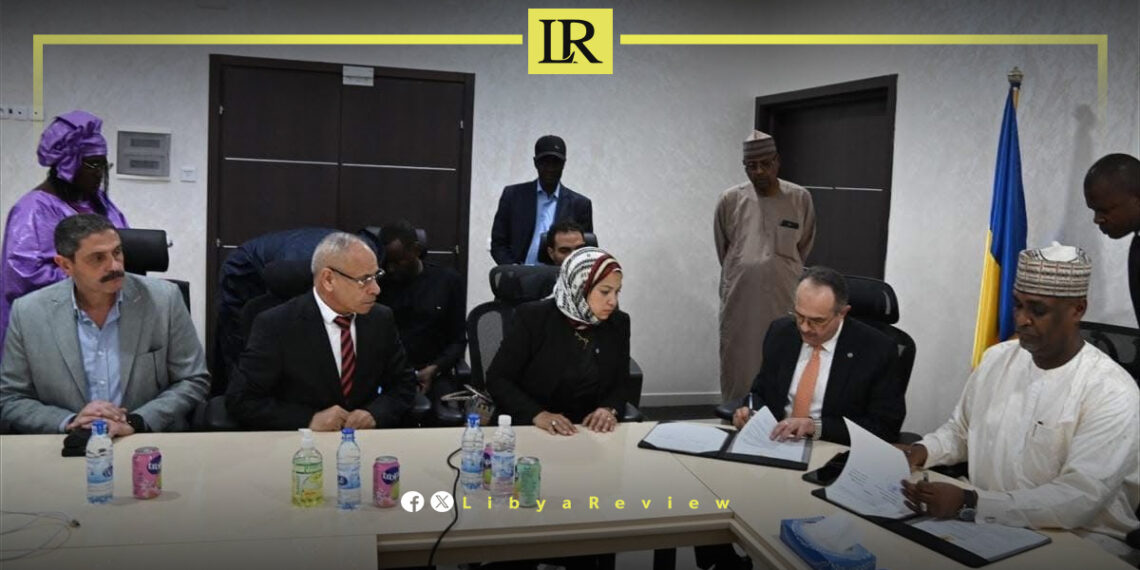Libya, Egypt, and Chad have taken a monumental step toward enhancing regional connectivity by signing a protocol agreement to study and implement a trans-Saharan highway linking the three countries.
Egyptian Minister of Housing Sherif El-Sherbiny hailed the initiative as a landmark effort to improve cross-border trade and foster regional cooperation.
The project, officially launched through a protocol agreement signed by Egypt, Libya, and Chad, promises to transform infrastructure in the region and strengthen Libya’s role in facilitating cross-border connectivity.
The agreement was signed by Chad’s Minister of Infrastructure and Road Maintenance, Aziz Mohamed Saleh, and the Chairman of Arab Contractors Company, Engineer Ahmed Al-Assar.
Libya, strategically located between Chad and Egypt, will host a significant portion of the highway, highlighting its importance as a transit hub in North Africa. The country’s Reconstruction and Development Fund signed a complementary agreement in September with Arab Contractors to oversee the middle section of the highway within Libyan territory. With all necessary agreements now in place, technical studies and implementation of the project are set to commence.
This ambitious highway is more than a road; it is a vital corridor designed to connect key economic zones in North and Central Africa. The project is expected to boost Libya’s economic recovery by fostering trade, creating jobs, and attracting investment. By facilitating the movement of goods and people across the Sahel, it will strengthen Libya’s integration into regional and continental trade networks.
The highway aligns with Africa’s broader development goals, including the African Union’s Agenda 2063, which prioritizes infrastructure development as a catalyst for economic growth and integration. For Chad, the road offers a critical link to North African markets, while for Egypt, it strengthens its leadership in regional development.
For Libya, however, the project signifies a step toward reclaiming its strategic role as a regional connector. After years of conflict, Libya’s involvement in such a transformative initiative sends a strong signal about its readiness to rebuild and collaborate on major infrastructure projects.
The trans-Saharan highway is also expected to enhance social ties by facilitating cultural exchange and tourism among the three nations. By linking landlocked Chad to Libya’s ports and Egypt’s robust trade networks, the project could redefine regional logistics and trade dynamics.


